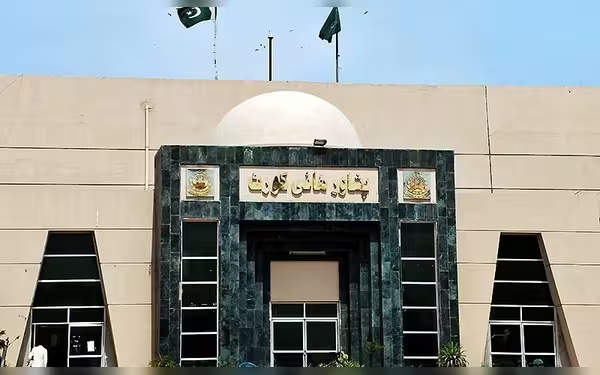Monday, November 25, 2024 09:26 AM
Peshawar High Court Petition for Lawyers’ Welfare Law Enforcement
- Writ petition filed for Lawyers’ Welfare Law enforcement.
- Call for dedicated courts and martyrs’ package for lawyers.
- Judicial Magistrate dismisses bail in embezzlement case.
 Image Credits: thefrontierpost
Image Credits: thefrontierpostA writ petition has been filed in Peshawar High Court to enforce the Lawyers’ Welfare Law 2023, addressing critical issues faced by lawyers.
PESHAWAR: In a significant legal development, a writ petition has been submitted to the Peshawar High Court (PHC) aimed at enforcing the Lawyers’ Constitutional Rights and Welfare Law 2023. This law, which was enacted to safeguard the rights and welfare of lawyers, has not been implemented in its original form, prompting advocate Ali Iqbal Qazalbash to take action.
The petition seeks to ensure that all provisions of the law are put into practice. This includes the establishment of dedicated courts for lawyers and the introduction of a martyrs’ package, which would provide support to the families of lawyers who have lost their lives in the line of duty. Furthermore, the petition emphasizes the need for protection against harassment, intimidation, and disrespect that lawyers often face during court proceedings.
In addition to these protections, the petition calls for the provision of medical facilities for lawyers and their dependents. The respondents named in the writ petition include the Federal Government, the Provincial Government of Khyber Pakhtunkhwa, the Pakistan Bar Council, the Peshawar High Court, the Peshawar Bar Council, and the Inspector General of Police, Khyber Pakhtunkhwa.
It is important to note that the petition highlights a concerning issue: despite the enactment of the Lawyers’ Constitutional Rights and Welfare Law 2023, its provisions have not been enforced. The petitioners argue that the law was designed to protect the rights and welfare of lawyers, yet its lack of implementation raises serious questions about the commitment to uphold these rights.
In a related matter, Judicial Magistrate Peshawar Dawlat Khan has dismissed the bail applications of two individuals, Tahir Hussain and Muhammad Idris, who are accused of embezzling Rs. 6.6 million from lawyer Syed Imran Ullah. The prosecution claims that the accused deceived the complainant by promising a business investment but failed to return the money. This case has drawn attention to the broader issue of financial misconduct within the legal community.
The prosecution described both accused as habitual offenders, involved in cheating and embezzling funds from unsuspecting individuals. Muhammad Idris was specifically mentioned in the case under Section 164 of the Code of Criminal Procedure, indicating the seriousness of the allegations against him. After hearing the arguments, the Judicial Magistrate decided to dismiss the bail applications of both accused, reinforcing the legal system's stance against financial crimes.
This situation underscores the urgent need for the enforcement of laws designed to protect lawyers and ensure their welfare. As the legal community grapples with issues of safety and respect, the outcome of the writ petition could have far-reaching implications for the future of legal practice in Pakistan. It is crucial for the authorities to take these matters seriously and act promptly to uphold the rights of those who serve the justice system.













